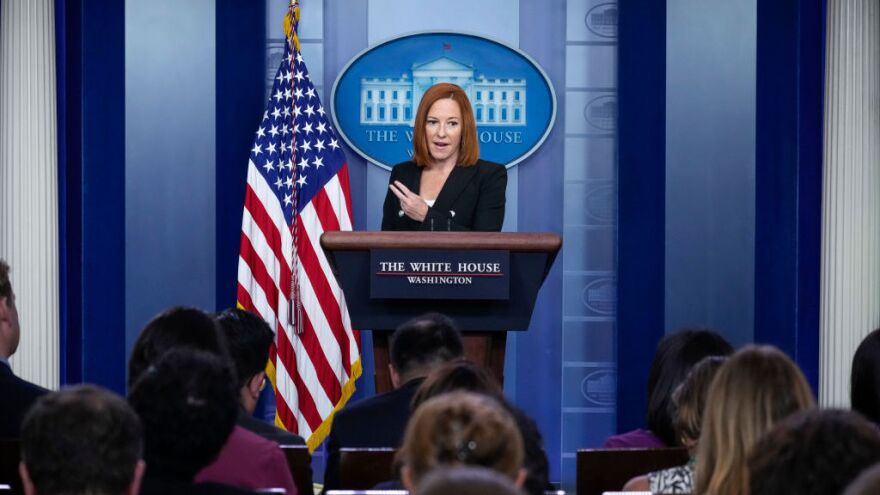Rep. Steve Scalise, the No. 2 Republican in the House, got vaccinated against COVID-19 on Sunday after months of waiting, citing the rise of the delta variant and increasing cases and hospitalizations, primarily among people who are unvaccinated.
His decision, reported on Nola.com, comes as lawmakers and the White House try to reach those hardest to convince to get vaccinated, and those with limited access. The messaging is delicate as there are also mild cases among people who are vaccinated — including in Washington, D.C.
"These shots need to get into everybody's arm as rapidly as possible, or we're going to be back in a situation in the fall — that we don't yearn for — that we went through last year," Senate Minority Leader Mitch McConnell, R-Ky., told reporters on Tuesday.
McConnell, who had polio as a kid, has long been supportive of vaccination, even as many members of his own party have not been as vocal or even rejected the vaccine.
Get vaccinated!
— Leader McConnell (@LeaderMcConnell) July 20, 2021
These shots need to get into arms as rapidly as possible, or else we're gonna be back in a situation this fall like what we went through last year. pic.twitter.com/J4o6yL5cn4
The White House announced Tuesday that a member of the Biden administration contracted a strain of the coronavirus despite being fully vaccinated against the illness. It is not the first breakthrough case among White House staff, press secretary Jen Psaki told reporters, though she did not have a total number.
The official who tested positive has had no recent close contact with President Biden or top White House aides, Psaki said. The official has mild symptoms of COVID-19 and will remain off campus and follow protocols as outlined by the Centers for Disease Control and Prevention, she said.
Psaki emphasized that these types of cases are to be expected and that symptoms experienced are "typically mild" because of protection from vaccination. She said that White House aides with close proximity to Biden are regularly tested.
The U.S. Capitol attending physician said Tuesday that "several vaccinated Congressional staff members and 1 Member of Congress" have been infected. A spokesperson for House Speaker Nancy Pelosi, D-Calif., is among those staff members. (See NPR's tracker of members of Congress affected by COVID-19 here.)
"Despite the excellent protective value of the vaccine in preventing hospitalization and death, there is still a possibility a fully vaccinated individual could acquire infection in their nose and throat, mild symptoms, or the ability to transmit the coronavirus infection to others," Dr. Brian Monahan said in a statement.
The illnesses are an uncomfortable reminder to officials and the public, who had hoped that increased rates of full vaccination among the general public would spell an end to many of the restrictions Americans had grown weary of, if accustomed to, over the past year.
In mid-May, amid a significant increase in the number of people who had been inoculated against the virus, the CDC issued guidance that people who are fully vaccinated can resume activities indoors and outdoors without masks.
The news, a boon to a society out of patience for masks, was met with joy across the country, and states updated their mask usage guidance to reflect the new CDC messaging.
But with cases of the delta variant, thought to be 225% more transmissible than original strains, on the rise, jurisdictions have had to rethink their policies.
This week, Dr. Jerome Adams, the former surgeon general, said the U.S. needs to change guidance on masking requirements again in light of new virus outbreaks and the more contagious variant. The new guidance "has just absolutely, unequivocally failed," Adams told NPR.
House Majority Leader Steny Hoyer, D-Md., told reporters that Congress may need to reconsider its mask policy.
"Now we're not wearing the masks," Hoyer told reporters. "We're going to have to decide whether or not — given the upswing in every state — whether or not prudence demands that we go back to wearing masks."
Copyright 2021 NPR. To see more, visit https://www.npr.org.


